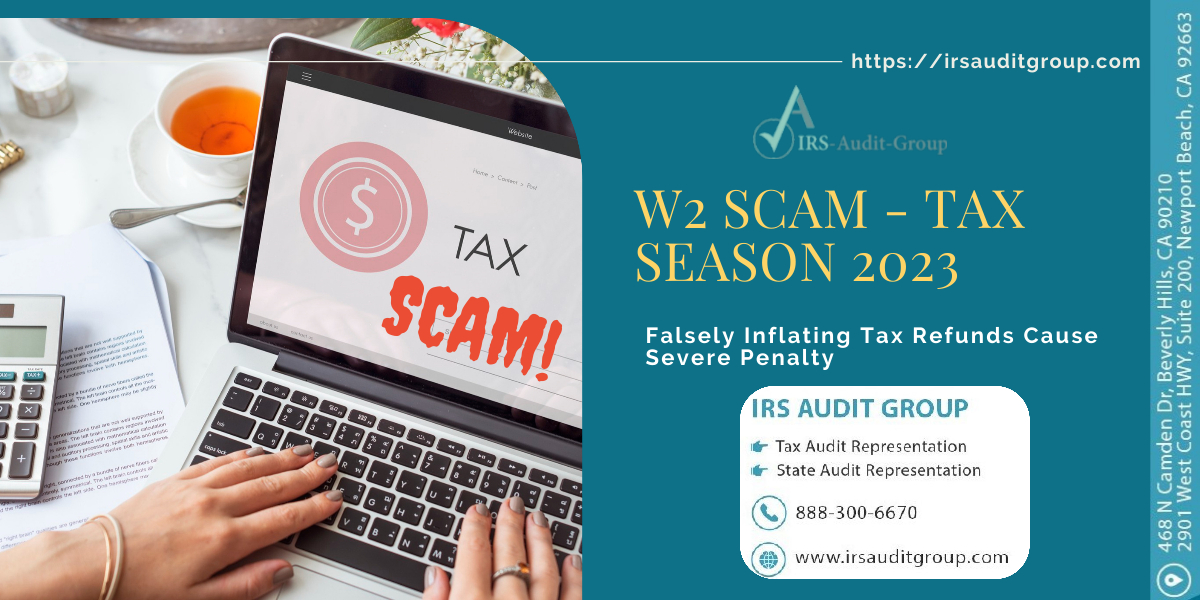The Internal Revenue Service (IRS) has issued warnings of new scams that urge taxpayers to use wage information on a tax return to claim false credits in hopes of getting a big refund. The new scheme circulating on social media encourages people to use tax software to fill out a Form W-2 to include false information. Scam artists encourage taxpayers to make up numbers showing large amounts of income and related withholding. Then, the scammers suggest simply e-file a bogus tax return to snag a large refund due to the amount of fake withholding. This deliberate misinformation about inflated income is used to take advantage of refundable tax credits.
Scam Variations
Two variations of this scheme are also being seen by the IRS; both involve misusing Form W-2 wage information in hopes of generating a larger refund.
- One variation involves scammers suggesting taxpayers file Form 7202, Credits for Sick Leave and Family Leave for Certain Self-Employed Individuals, to apply for a credit based on earnings made as an employee rather than a self-employed individual. These credit dates to the pandemic period for 2020 and 2021 and can’t be accessible for 2022 tax returns.
- Another variation of this scam involves taxpayers making up fictional employees that they claim are employed in their household and using Schedule H, Household Employment Taxes. Then, taxpayers file for a refund based on false sick and family wages they never paid in the first place.
Many such scams, where taxpayers suggesting to claim huge refunds by filing the tax return electronically in hopes of getting a substantial refund.
Vigilance
The IRS reminds taxpayers that they are actively watching for this scheme and others along with the Security Summit partners in the tax industry and the states. In addition, the IRS works with payroll companies and large employers—as well as the Social Security Administration—to verify Form W-2 information.
Penalties
Falling for such scams unknowingly or deliberately for getting viral on social media will be subject to a wide range of penalties. This may include a frivolous return penalty of $5,000. Filers also run the risk of criminal prosecution for filing a false tax return.
What To Do?
Seek out tax advice from credible sources, including the IRS website, and consult trusted tax professionals. Ignore advice from viral reels and videos that sounds too good to be true. And please do not share such contents which misguides other taxpayers. For anyone who has participated in one of these schemes, there are several options that the IRS recommends. People can amend a previous tax return or consult with a trusted tax professional.
IRS Audit Group is a tax audit representation firm from Los Angeles, California. The company employs a team of certified tax lawyers who possess expertise in both state and federal tax audits. Irrespective of the client’s location, these tax professionals can evaluate your audit situation and represent you before the IRS to secure a favorable outcome for the client. Please contact us for more information. https://irsauditgroup.com/contact/
Telephone Number: (310) 498-7508

